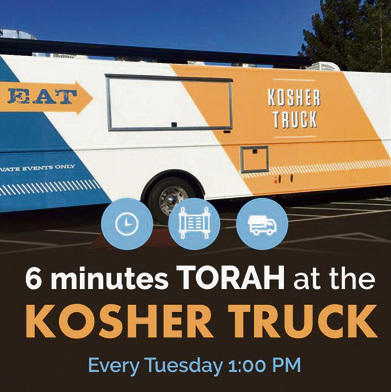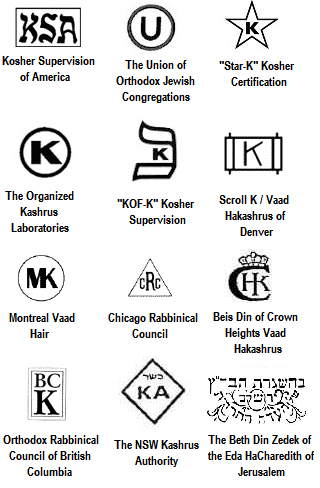
The Kosher Truck serves food in Facebook Campus
The Headquarter of Facebook Inc. in Menlo Park, CA starts serving kosher meals. Some people think that Kosher food is for the Jews, but this is not true. We introduce the differences of Kosher food to non-kosher food and the Kosher food market opportunity.
What is Kosher Certification?
“Kosher” has the highest level food safety certification in the contemporary food industry and trade. To obtain the Kosher food certification, it has to start from investigating all the ingredients, and after going through rigorous inspection procedures, the certified Kosher food will be able to attract more consumers. In Europe and the United States, Kosher food products is considered as an authority for reliable health standards, and the buyers include Muslims, Jews and vegetarians alike. The rules of Kosher are based on the ancient Jewish tradition combining the processing of the modern food industry. No matter what the food’s origin and style is, getting Kosher means gaining a group of royal supporters.
With the rapid development of industrial technology, the laws of Kosher has been evolved with new rules of precision and systematization to meet the changes. For example, you might think that potato chips sold in supermarkets are Kosher by nature, because potatoes (also all the fruits and vegetables) are edible according to the Torah. However, many potato chips are not processed in the standard of Kosher cleanliness due to the facilities and containers may be sterilized with ingredients that contain tallow residues, which are not permitted under Kosher laws.
This is why more and more non-Jewish consumers have become purchasing power for clean food products because the quality and authority of clean food certification goes beyond mere religious significance. Clean food has also been generally accepted as more healthy.
Kosher Laws are very strict in slaughtering of edible livestock and poultry. Kosher slaughtering is based on the most stringent and humane requirements to ensure the least suffering from animals and the best quality of produce. There has been seldom BSE and E. coli danger in Kosher meat. People who are allergic to certain foods (such as barley, dairy and shellfish) can be assured of Kosher food because Kosher rules have excluded allergens from those ingredients. Vegetarian and lactose intolerant consumers can rely the “PARVE” Kosher products, which means dairy-free and meat-free. Raw fruits and vegetables do not require Kosher since it’s edible by nature.
The Kosher Food Market

Common Kosher Logos
The United States owns the largest Kosher food market and is popular among general public because people consider Kosher as more reliable than “pure” or “additives free” and other claims.
You might be surprised to know that 80% of Kosher food consumers are non-Jews; Kosher products have annual sales of US$170 billion+ and a 15% annual increase. The Canadian Kosher food market is growing at an annual rate of 20%.
The basic rules of Kosher
Although the precepts of Kosher are very complex, they can be summed up in four simple basic precepts:
- Milk and meat must not be mixed.
- Meat products and milk products must not use the same set of processing equipment.
- Only certain animals, poultry and fish are kosher – cows, goats, sheep, deers (rare), chickens, turkeys, ducks and geese, and fish with scales.
- Kosher animals must be slaughtered and dressed in special ways to ensure the minimal pain. Sick or blemished animals are not allowed. Cutting meat from living animals is absolutely forbidden.
In addition to the above, there are two factors that determine whether a product can gain Kosher certification:
- Sources of ingredients
- The Status of production equipment
Three Categories of Kosher Food
- Meat (Basari): Products containing Kosher meat or meat derivatives, or non-animal products which is been processed in meat facilities.
- Dairy (Chalavi): Products containing milk, goat’s milk or any dairy derivative, including non-dairy products using dairy processing equipment will also be regarded as dairy products.
- Neutral (Parve): Neither meat nor dairy products, and the processing equipment has never been used for meat or dairy products.


